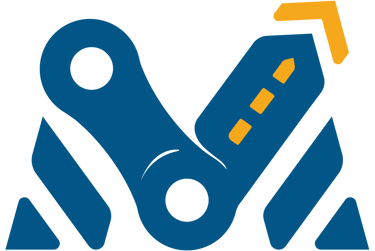
INCLUSIVE COMMUNITY ENGAGEMENT TOOLKIT
Ensuring voices are heard with inclusive
community engagement
What is inclusive community engagement?
Across the United States, decision-making processes often ignore or exclude certain community members’ needs.
The exclusion of these needs is built into our processes, making them systemic. There is an imbalance of power between community members of agent social identity groups such as white and wealthy families, and members of targeted social identity groups such as low income, single-parent, immigrants, and Black and Brown families.
When a group of people is left out of the decision-making, then the process does not work for everyone. When we make an effort to include every voice, especially those voices that have two jobs, are struggling, who don’t have a car to get around, then we build a stronger community – a community for everyone.
Equitable community engagement benefits organizations and governmental bodies by providing feedback from people who are typically underrepresented in city processes.
Organizations often use data collected from surveys and focus groups to help direct their work, but these resources can be greatly biased depending on who is able, willing, and asked to participate.
For example, Local Motion’s annual community survey asked residents to rank and prioritize quality of life issues related to public transportation, including the construction of roads, streets and sidewalks. In 2019, 52% of respondents reported having a household income of $100,000 per year or greater, which is more than twice Columbia’s median household income of $41,000.
Realizing that the Local Motion’s strategic direction had been designed around the priorities of wealthy Columbians, Local Motion researched and adopted practices for including populations with lower incomes, people with disabilities, people of color, and other marginalized groups. Valuable input from these groups has given us the context to sharpen our focus on transportation equity.
When creating plans based on citizen input, Local Motion typically hires consultants to facilitate community engagement. Still, these efforts often fail to engage neighbors from Columbia’s Vision Zero Priority Neighborhoods. These are neighborhoods with a high proportion of people of color, low income households, and households with no vehicles.
Beyond giving community members an opportunity to be heard, Local Motion believes the most vulnerable and disproportionately impacted should be the central focus on project outcomes. We can’t simply create “values” while also operating on plans that consistently ignore underrepresented groups.
WHAT IS IN THE TOOLKIT?
As you look through this toolkit, keep in mind that the actions outlined here might not be relevant for every project. Think of it as a list of key ingredients rather than a step-by-step recipe. You will use different parts of this toolkit depending on the people you are trying to reach, resources, and needs of the community.
Our Values are adapted from the International Association for Public Participation. These values are intrinsic to every advocacy campaign we hold and are ever-changing with our experiences and input from the community.
The Pre-Assessment guides you in evaluating your current levels of equitable and inclusive community engagement. We realize that these changes will not always come quickly, and this pre-assessment will show you key areas for improvement.
Actions for community organizations and municipalities to direct engagement work. These are arranged in five essential areas of activity and include researched best practices.
Working Social Justice Definitions can be hard to differentiate and remember, so we included a list from the National Conference for Community and Justice of Metropolitan St. Louis (NCCJ St. Louis) Facilitrainer program. Where you see a word bolded in green, there is a corresponding definition at the end of this document.
How to use it:
STAY CONNECTED WITH US
Be the first to hear about our latest Advocacy Alerts and events, and get updates on the work our organization is doing every day with the support of people like you.


